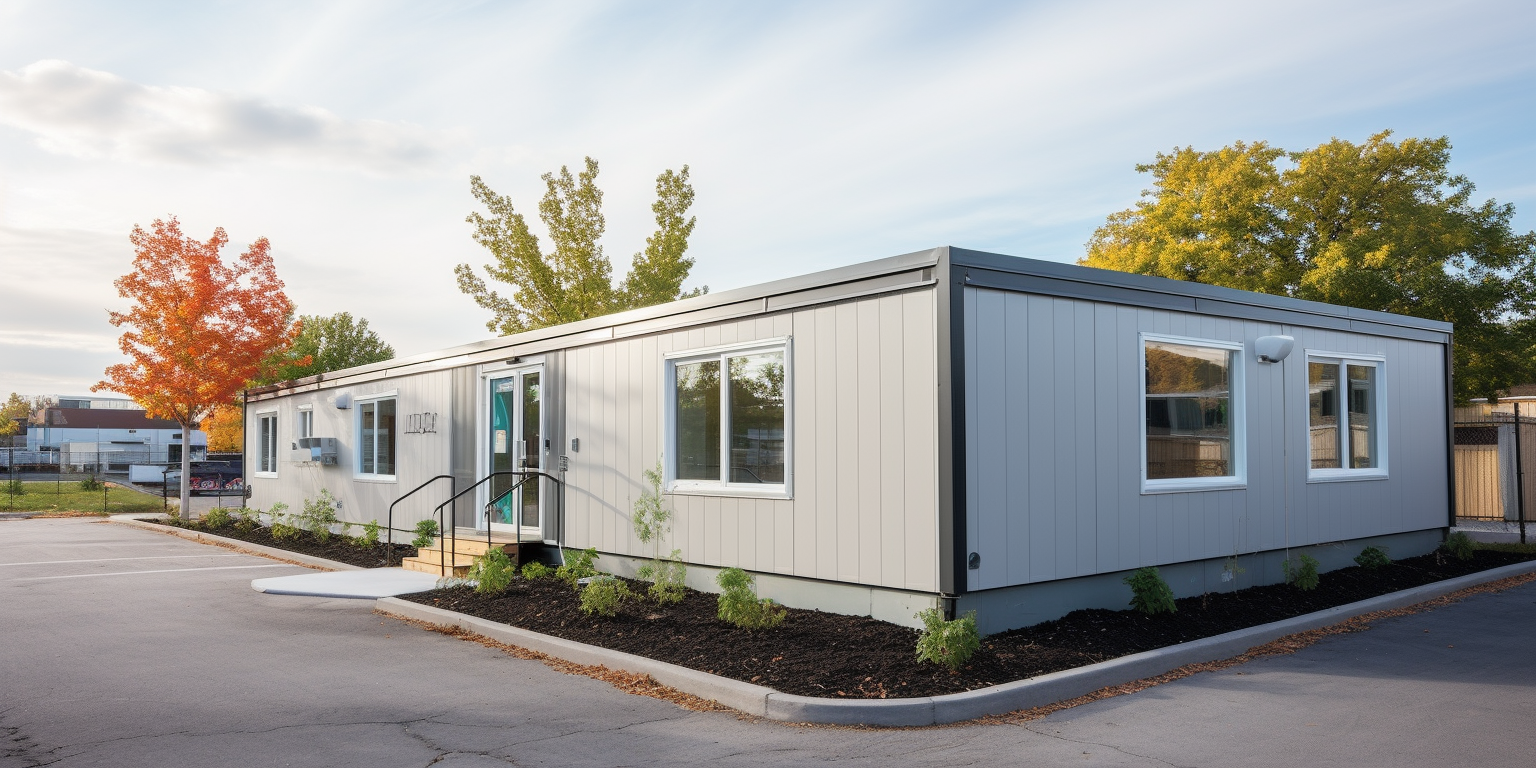
The rise in educational demand in the UK has put increasing pressure on academic institutions to provide more classrooms, offices, and other associated buildings in more significant numbers, often with limited budgets and timeframes. This has led to a sharp increase in the uptake of modular buildings to meet the growing demand, and in doing so, there are remarkable advantages to be had. In this article, we will explore the core benefits of modular buildings for educational institutions in the UK and how these can benefit supply chain managers and purchasing managers, among others.
The most discussed and notable benefit of modular buildings is their construction speed; these buildings can be up and running as quickly as possible. This fast construction process can also be due to the off-site assembly of modular buildings that can be designed according to the individual requirements of the purchaser in a fraction of the time of a traditional, on-site construction. This means a modular building can be installed in much less time than a conventional building without disrupting the environment or the surrounding area.
Modular buildings are also highly cost-effective, from the initial design and building stage to the ongoing maintenance costs. Modular buildings can be built to meet any size requirement, such as a classroom, office, or recreational space, which makes them more suitable for educational institutions with a variety of space needs.
Furthermore, modular buildings are also incredibly energy-efficient, as the latest innovations in energy-efficient roofing, window and door systems, and internal insulation make them even more ecological. This is an area of particular relevance to purchasing managers and supply chain managers, as energy costs are a significant factor when considering the cost of a building.
Finally, modular buildings are also highly durable, and with high-quality steel components being used in their construction, the internal and external components can last for years. In addition to this, modular buildings are designed to withstand different weather conditions, meaning they are well suited for the UK climate.
In conclusion, modular buildings provide many benefits to educational institutions, making them much more cost-effective and convenient for meeting academic demand in the UK. They are fast to build, cost-effective, energy-efficient, and highly durable, offering an attractive option for supply chain managers, purchasing managers, and other stakeholders looking to provide a solution for increased classroom demand in the UK.
The most discussed and notable benefit of modular buildings is their construction speed; these buildings can be up and running as quickly as possible. This fast construction process can also be due to the off-site assembly of modular buildings that can be designed according to the individual requirements of the purchaser in a fraction of the time of a traditional, on-site construction. This means a modular building can be installed in much less time than a conventional building without disrupting the environment or the surrounding area.
Modular buildings are also highly cost-effective, from the initial design and building stage to the ongoing maintenance costs. Modular buildings can be built to meet any size requirement, such as a classroom, office, or recreational space, which makes them more suitable for educational institutions with a variety of space needs.
Furthermore, modular buildings are also incredibly energy-efficient, as the latest innovations in energy-efficient roofing, window and door systems, and internal insulation make them even more ecological. This is an area of particular relevance to purchasing managers and supply chain managers, as energy costs are a significant factor when considering the cost of a building.
Finally, modular buildings are also highly durable, and with high-quality steel components being used in their construction, the internal and external components can last for years. In addition to this, modular buildings are designed to withstand different weather conditions, meaning they are well suited for the UK climate.
In conclusion, modular buildings provide many benefits to educational institutions, making them much more cost-effective and convenient for meeting academic demand in the UK. They are fast to build, cost-effective, energy-efficient, and highly durable, offering an attractive option for supply chain managers, purchasing managers, and other stakeholders looking to provide a solution for increased classroom demand in the UK.
